6. Insomnia (1997)
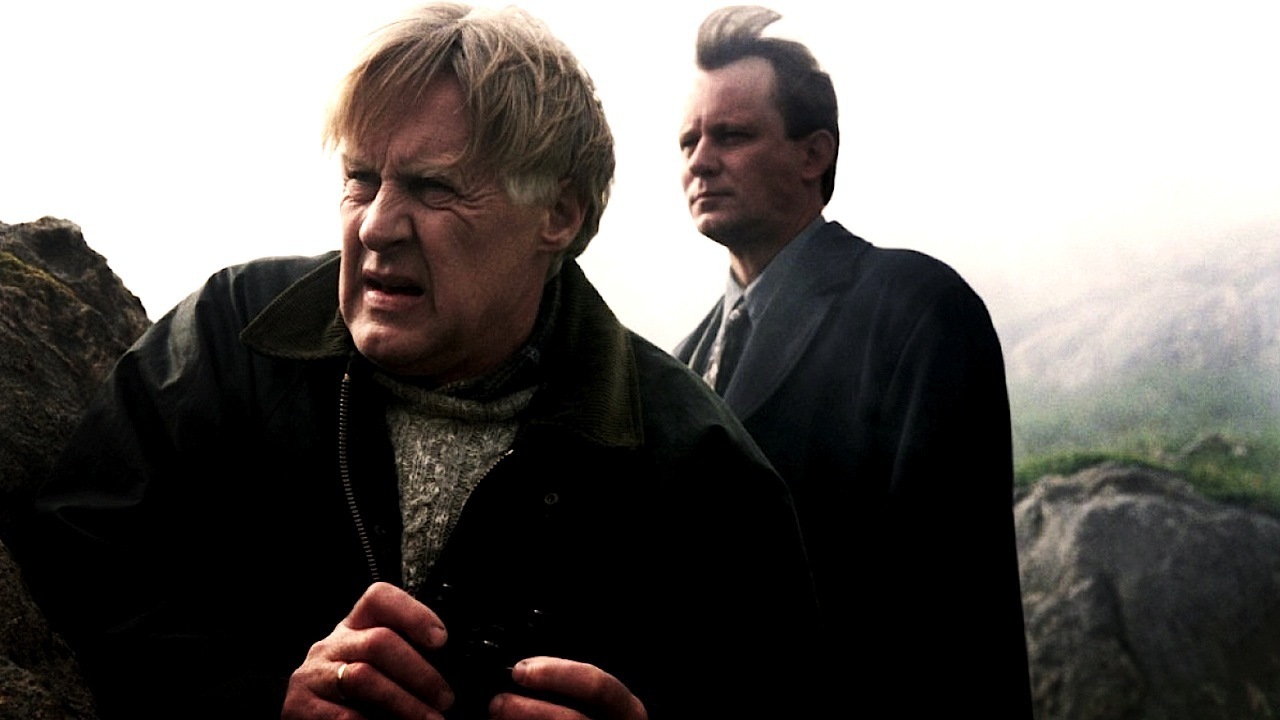
From Erik Skjoldbjærg’s 1997 feature debut Insomnia, emerges a darkly nuanced tale of light, stasis, and the foggy depths of the human psyche. Skjoldbjærg himself described the film as a “reversed film noir,” utilising light rather than darkness to produce its dramatic effects.
The premise is familiar: a detective arrives in a quiet town to investigate the death of a teenage girl. But it is the unsettling permanent daylight of the landscape, set above the Arctic Circle during the six-month Scandinavian summer, that sets the plot apart from other films of the crime genre.
Permanently exposed in bright opaque light, there are perceivably few hiding places for crime in this landscape. Yet, as the detective trails the impassively lit streets for a clue, he finds he is descending into a hallucinatory game of cat and mouse with the killer himself.
The film’s title is a reference to detective Engström’s inability to sleep while the invasive summer sunlight constantly seeps into his hotel room. He lies awake at night, attempts to shut out the light by taping the blinds down, but nothing works. His insomnia soon dissolves into restlessness and delusion, as he commits a crime of his own.
While Insomnia is a film of unending daylight, it is also paradoxically a film of unending mystery and concealment. Illuminating few of its secrets, Insomnia takes its rightful position as a masterpiece of Scandinavian cinema.
7. The Girl With The Dragon Tattoo (2009)
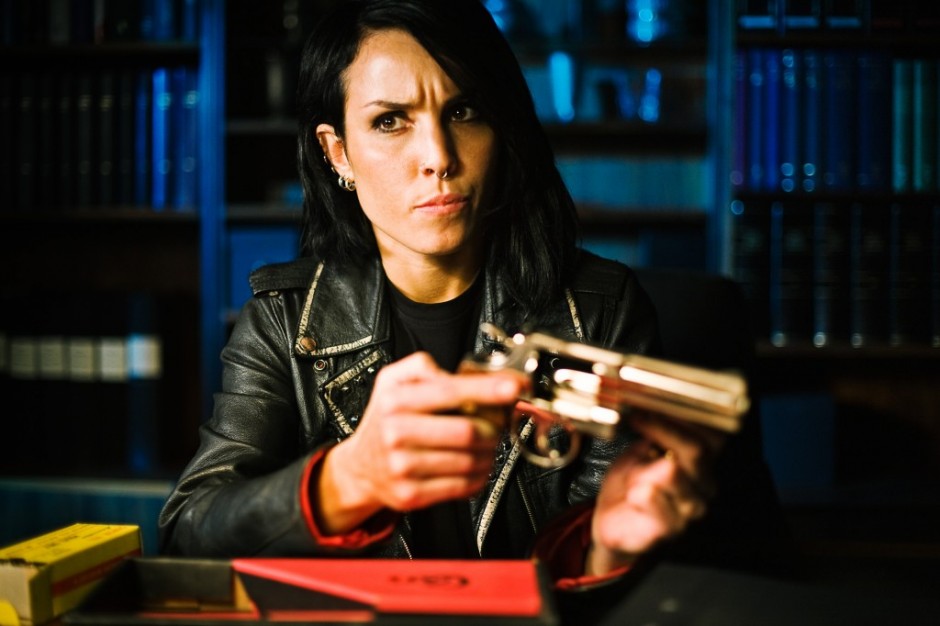
Electric and unrelenting, Oplev’s The Girl With The Dragon Tattoo is undoubtedly one of the most iconic films to emerge from Scandinavian cinema. An unforgettable reinvention of the thriller-crime genre, Oplev’s film is a faithful adaptation of Swedish author Stieg Larsson’s intricate novel, and has garnered recognition from worldwide audiences.
Henrik Vanger recruits journalist, Blomkvist, and hacker, Lisbeth Salander, to investigate the disappearance of his niece forty years earlier. Like many of the Scandinavian films on this list, the film is deeply concerned with secrets. Their investigation ultimately leads them into the complex and mysterious history of the Vanger family’s secrets. Iconic heroine, Salander, carefully guards her own secrets and identity while exposing the secrets of others. At three hours and six minutes, the truth is a long way off to this gritty descent into depravity.
Oplev does not hold back in his depiction of the explicit themes encountered in Larsson’s novel. Sinister and grisly, The Girl With The Dragon Tattoo is confrontational in its pervasive, graphic scenes of violence towards women, the struggles of welfare agencies in Sweden, torture, and murder. Though shocking, The Girl With The Dragon Tattoo addresses very real issues persisting in Scandinavia, and across the world, even today.
While many will be familiar with David Fincher’s 2011 remake, the original The Girl With The Dragon Tattoo indisputably reigns, as an accomplished masterpiece from a modern Scandinavian master.
8. Melancholia (2011)
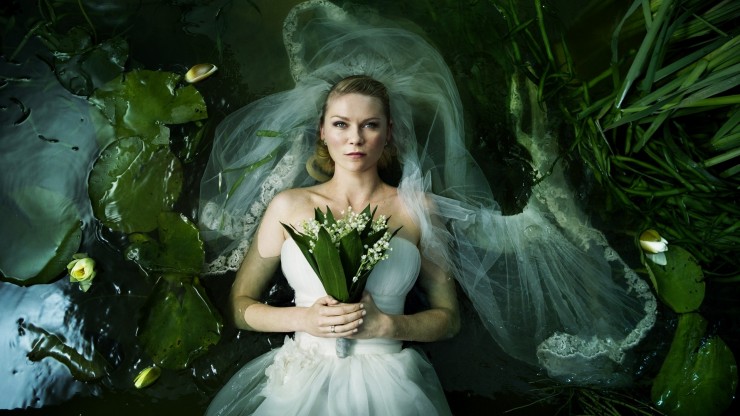
A cataclysmic blue planet swings steadily toward the earth. Birds tumble out of a stormy sky. On a wind-torn hillside a woman clutches her son, bracing for impact. This is how Melancholia begins: with the end of the world.
From renowned Danish director Lars Von Trier, Melancholia examines the lives of two sisters, Justine and Claire, after they learn of an approaching planet called Melancholia, which is on course to collide with earth. The plot revolves around the sister’s disparate views of the inevitable end of the world, and the tensions formed between them leading up to the apocalypse.
Deeply personal, the apocalyptic symbolism of Melancholia is partially inspired by director Lars Von Trier’s experience of life-long mental illness, specifically, melancholia. At a suitable snow-laden pace, enchanting cinematography traverses ethereal, desolate landscapes of misted valleys and winnowing reeds. A subdued palette of moss greens and pearly whites punctuate the sullen tone that permeates throughout the film.
Melancholia is a poetic effort to encapsulate the internal symbolism formulated from moments of devastation and depression. In this way, the film is an innovative addition to the history of apocalyptic films, successfully situating physical catastrophe alongside the hardships of individual human experience. Melancholia is an indispensable Scandinavian film for fans of cinematic pieces that prioritise emotional experience, and the lyrical over the unlyrical.
9. The Hunt (2012)
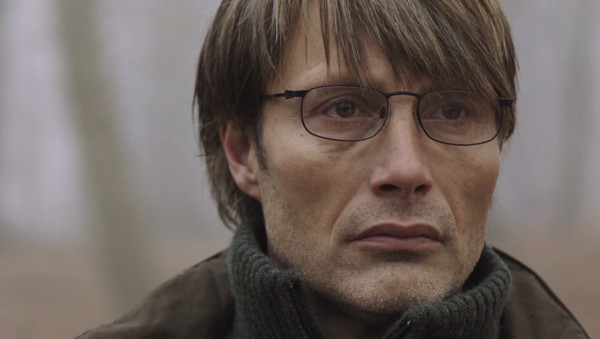
What would it feel like to be wrongly accused of a crime? How would you live with the accusation? Crucial questions around criminal conviction and innocence are raised in Thomas Vinterberg’s engrossing 2012 tragedy, The Hunt.
Vinterberg revisits a central theme explored in his early film, Festen: child abuse. The difference being that this time, the alleged paedophile is shown to be innocent from the outset of the film. The Hunt opens on Lucas, a divorced day-care worker who lives a relatively comfortable life in a small Danish community. When Lucas is wrongly accused of sexually abusing one of his pupils at the day-care centre, his life and social reputation rapidly unravel, as he fights to defend his innocence.
Mads Mikkelsen, who portrays Lucas, won Best Actor at the Cannes Film Festival, for his emotionally torn performance of a man struggling to come to terms with the reality unfolding around him. The permanence of the accusations against Lucas are startling: he is ostracised by his community as a paedophilic sexual predator. Vinterberg seeks to give the misrepresented representation in The Hunt, telling the tale from the side of the truth.
Fast-paced and arguably flawless, the film manages emotional depth and frenzy without ever leaving the stark reality of the tale it tells. The Hunt is a remarkably moving contemporary Scandinavian masterpiece; a cautionary account of the shattering not-so-innocent consequences of seemingly innocent lies.
10. The Day Will Come (2016)
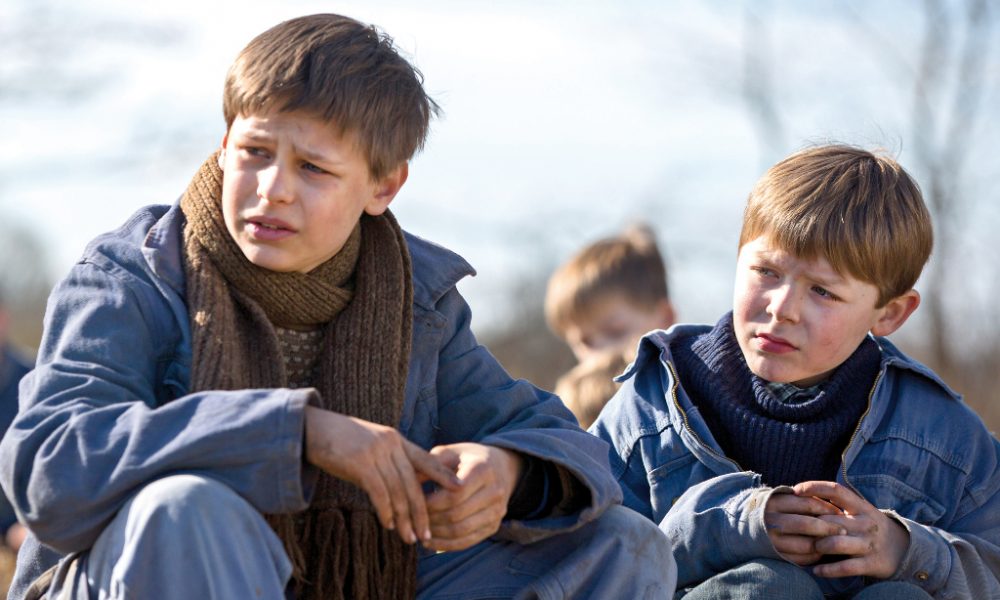
Jesper Nielsen’s tragic but moving cinematic portrayal of the true events that took place at Dutch reformatory orphanages during the sixties could not escape this list. Upon its release in 2016, The Day Will Come received immediate attention and praise, receiving six prizes in 2017.
After their mother is hospitalised and no longer able to work, ten-year-old Elmer and his thirteen-year-old brother Erik are sent to the Gudbjerg boy’s orphanage in the countryside. This pivotal moment alters the brothers’ lives forever. Within the orphanage, the boys encounter abuse, victimisation, and are constantly vulnerable to the exploitative actions of the orphanage headmasters.
The original film has since been edited into a three-part mini-series, following a triptych structure that divides the time the brothers spend within the orphanage. The cast of The Day Will Come present truly impressive portrayals of the terrifyingly real events that would have occurred within the walls of this institution. Though unavoidably tragic, the film manages to find inspiration in the boys’ courageous fight back against oppression and hardship.
The Day Will Come is a truly distressing and heartbreaking film to endure, but the disturbing truth of the tale it voices situates it as a crucial film on this list, depicting a very real moment in Scandinavian history that deserves acknowledgment and apology.